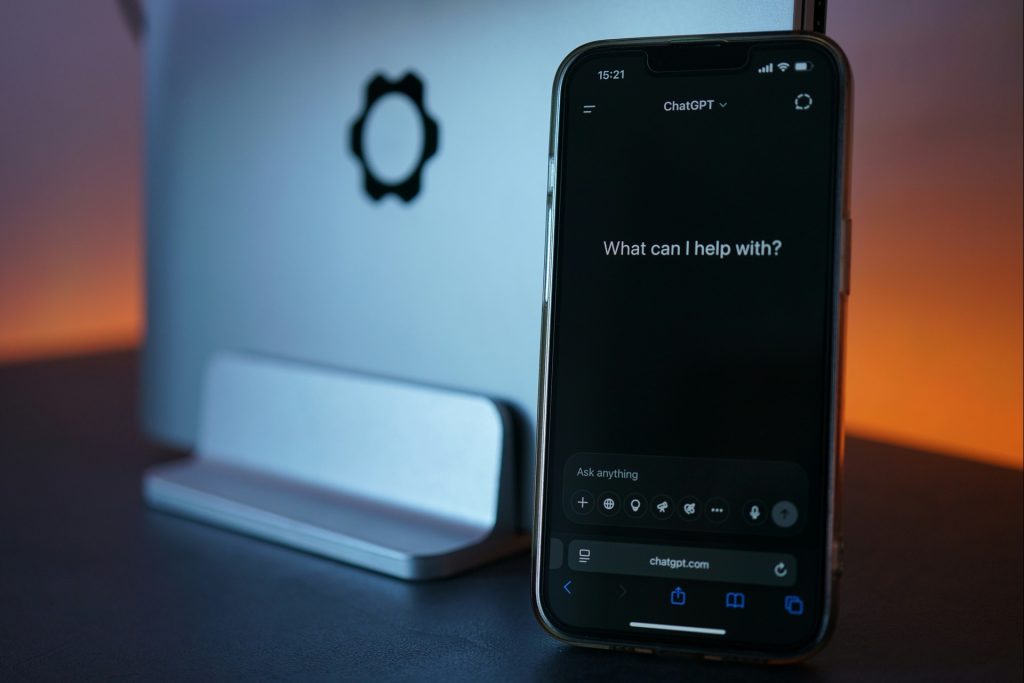

Artificial intelligence (AI) is changing how businesses connect with customers by helping brands create faster and more meaningful interactions. These tools are no longer limited to large companies — today, they’re within reach for small businesses, independent designers, and marketers who want to stand out and forge stronger relationships with their audience by using AI in marketing.
The State of AI in Marketing
Global marketing revenue tied to AI is projected to hit $47 billion by 2025 and soar past $107 billion in 2028. Businesses across industries are turning to technology to reduce manual work, improve performance, and boost return on investment (ROI). This also means that customers are changing the way they interact with brands.
Young adults aged 18 to 24 lead AI engagement, primarily through digital shopping assistants, learning apps, and AI-powered companion tools. Their comfort with these technologies pushes marketers to create more innovative and personalized experiences tailored to this demographic. The 25 to 34 age group follows — mainly using AI for music, lifestyle, and utility apps. The older 35 to 49 cluster is also a fan of AI tools, but they mostly use them for health, transcription, and photos or videos. This information offers a straightforward guide on how businesses can tailor-fit AI campaigns to appeal to specific customers.
According to Harvard Business Review, 45% of marketers already use generative AI, while another 45% said they plan to adopt it soon. Popular uses include summarizing lengthy interviews, analyzing large datasets, and generating reports. A ZoomInfo survey of over 1,000 go-to-market professionals found that frontline teams using tools like ChatGPT report a 47% boost in productivity, saving an average of 12 hours per week.
10 Ways AI in Marketing Is Redefining Customer Engagement

Here’s how AI-driven marketing enables companies to build authentic connections with consumers:
1. AI-Driven Targeting and Predictive Analysis
AI can anticipate behavior. Predictive analytics powered by AI enables marketers to forecast customer actions — improving ad precision and reducing churn. AI also helps teams focus on prospects who are more likely to convert.
2. Hyper-Personalization
Businesses can use AI to generate interaction data from online behavior to design future campaigns and customer service improvements. This ensures strategies truly connect with the market in a way that drives them toward clicking “Buy.” Natural language generation can create unique greetings and messages based on customer input, while natural language processing enables machines to respond to customers in a way that feels authentic. Marketers can later adjust to ensure that campaigns always leave a positive and lasting impression.
3. Human-like Interaction 24/7
Chatbots can provide unique responses to any inquiry — guiding customers through the buying journey and leading them to convert. This marketing automation is done with zero human intervention — and can happen at any time of the day.
4. Smart Content Creation
An April 2025 study by Harvard Business Review cites content creation as the dominant reason for generative AI use — accounting for 23% of use cases. This means marketers can spend more time on creativity and strategy while producing consistent output.
5. Dynamic Landing Pages
Unlike static campaigns, AI enables businesses to create pages that adjust in real time based on visitor behavior. Brands can run multiple user experiences simultaneously without needing manual changes for each version.
6. Automated A/B Testing
AI accelerates data gathering by continuously comparing subject lines, ad versions, or visuals to know which performs best for a specific target market. What once took weeks with human researchers now takes only hours and minutes — to produce data-backed decisions that drive results. Marketers fine-tune the messaging in near-real time and then scale what works.
7. Customer Sentiment Analysis
Comments, reviews, and social media posts reveal how people feel about a brand, and monitoring this feedback helps companies spot problems early and adjust their messaging before issues blow up. Speedy responses build trust and improve overall brand perception. AI’s assistance tells customers that your company takes their concerns seriously and is committed to addressing them promptly.
8. Brand Consistency Monitoring
Consistency is vital to earning customer trust — when every touch point feels familiar, the feeling reinforces a company’s professionalism and credibility. AI helps manage this even across distributed teams to reduce inconsistencies that can weaken brand recognition.
9. Voice Search Optimization
With the rise of virtual assistants like Alexa and Siri, optimizing for voice search is essential. AI helps businesses structure content to match how customers speak — expanding organic reach and improving user experience. Voice opens up opportunities to connect with customers during hands-free moments like cooking or driving. Responses can even be tailored to a specific demographic or client persona.
10. Ad Resonance
Resonance metrics inform brands which customers liked their ad, remembered it, and correctly attributed it to the brand. Targeted content that reflects user preferences and behavior will feel more relevant, and dynamic AI-driven adjustments will ensure that marketing campaigns are aligned with ever-evolving audience needs.
How Businesses Benefit from AI

AI can achieve multiple goals by saving time, delivering measurable ROI, and improving customer experience. It analyzes data and provides unique content to strengthen loyalty, streamline operations, and boost leads.
It may seem artificial initially, but today’s customers expect companies to respond to their concerns accurately and quickly — which might not be feasible with human service agents. AI can help deal with basic queries so that actual talents can tackle more complex roles and plan long-term strategies. Companies can achieve better campaign performance with less waste by nailing marketing precision.
The Future of Customer Engagement Is Intelligent
As AI continues to evolve, its role in marketing will only grow more central — enabling brands to deliver experiences that customers appreciate and expect.
AI is not replacing marketers — it’s empowering teams to do more with less, connect deeply with customers, and drive more profits. Businesses that embrace this technology today will be better positioned to lead tomorrow.




Leave a Comment